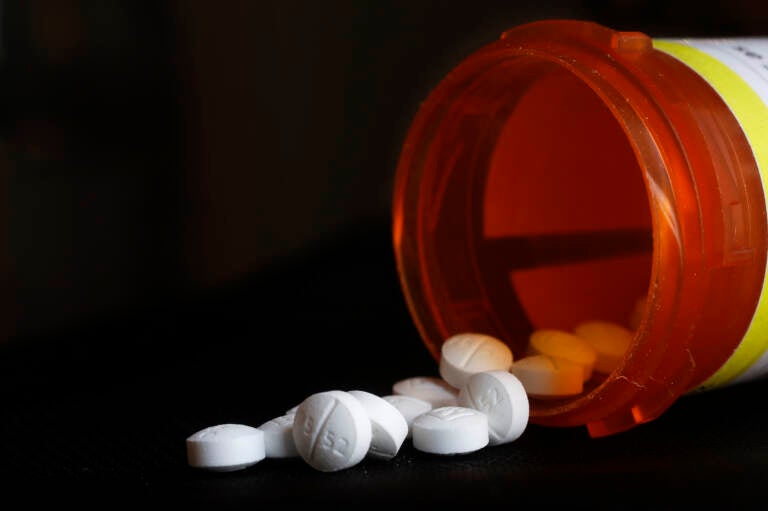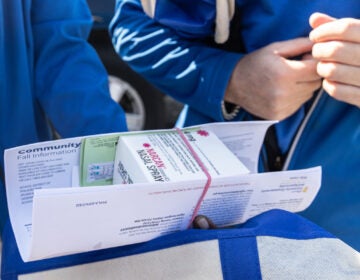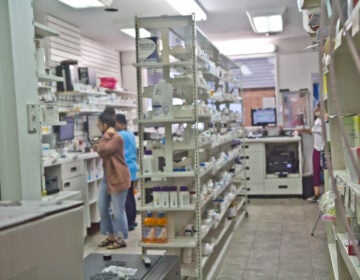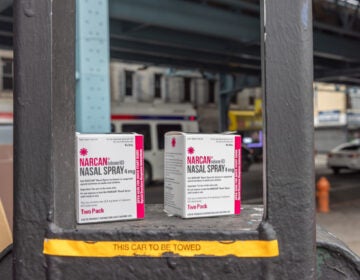After record-setting year, Delaware’s overdose deaths reach a new monthly high in May
Delaware set a new record for OD deaths in May. It’s the latest evidence that Delaware’s rate of overdose deaths shows no sign of slowing down.

File photo: This photo shows an arrangement of Oxycodone pills. (AP Photo/Mark Lennihan, File)
42 people died in Delaware due to a drug overdose in May, the most ever in a single month.
The state Division of Forensic Science says the 42 deaths top Delaware’s previous monthly high of 39 deaths set in August 2018 and tied in May 2020.
Last month, 25 OD deaths happened in New Castle County, 12 in Sussex, and five in Kent.
State health officials believe the vast majority of those deaths were related to fentanyl, the highly powerful synthetic pain reliever that’s been connected to the majority of OD deaths in recent years.
“This increased loss of life is heartbreaking,” said Dr. Karyl Rattay who leads the state Division of Public Health. “It is important for the public to know that fentanyl is being added to multiple types of illicit substances and is seen more commonly with amphetamines like cocaine.”
Delaware set a grim record in 2021 for most OD deaths in a year, with 515. More than 82% of those ODs involved fentanyl. Rattay urged residents to be prepared to help their loved ones should they suffer an overdose with the reversal medication naloxone, also known as Narcan.
“We know that Narcan can and does save lives, so we urge anyone who is actively using any illicit substances, as well as family and friends, to have Narcan on hand and be trained on how to use the medication,” Rattay said.
She pointed to the state’s Hope Line which is available 24/7 to direct callers to resources and information that could help. That includes support from clinicians and peer specialists, as well as crisis assistance.
The Hope Line can be reached at 1-833-9-HOPE-DE, or by texting DEHOPE to 55753. Help is also available online at HelpIsHereDE.com.
Director of the state Division of Substance Abuse and Mental Health Joanna Champney said there’s no wrong door to access treatment. She encouraged anyone who may need help to call or stop by one of the Bridge Clinics, located in each county.
“Our Bridge Clinics greet walk-ins with dignity and no judgment,” Champney said. “Whether someone just needs to talk about their options or they’re ready for treatment, we can help you.”
Health officials say people should not be afraid to call for help when someone is experiencing an overdose. Under Delaware’s 911/Good Samaritan Law, neither the person who calls 911 to report an overdose nor the one in medical distress can be arrested for low-level drug crimes.
WHYY is your source for fact-based, in-depth journalism and information. As a nonprofit organization, we rely on financial support from readers like you. Please give today.






